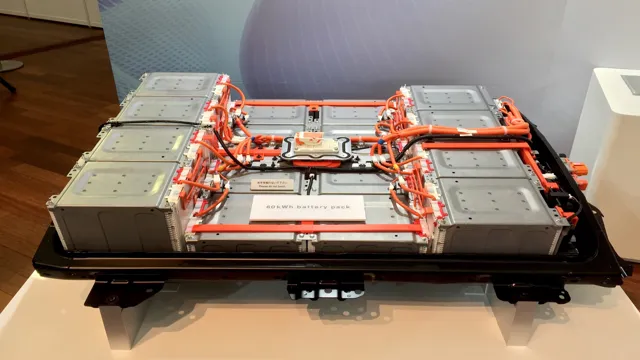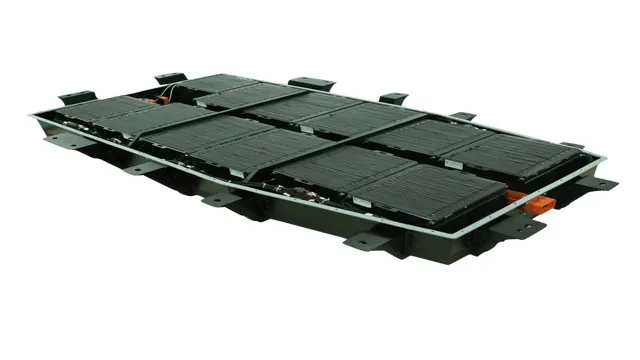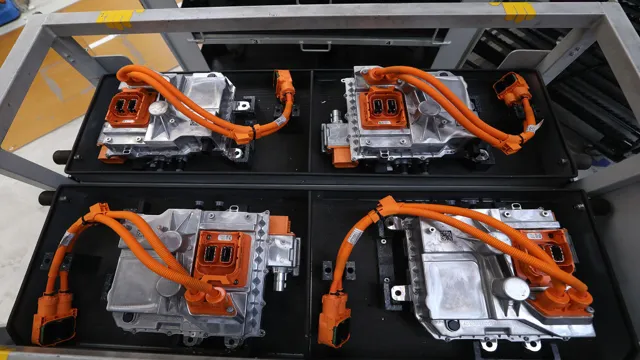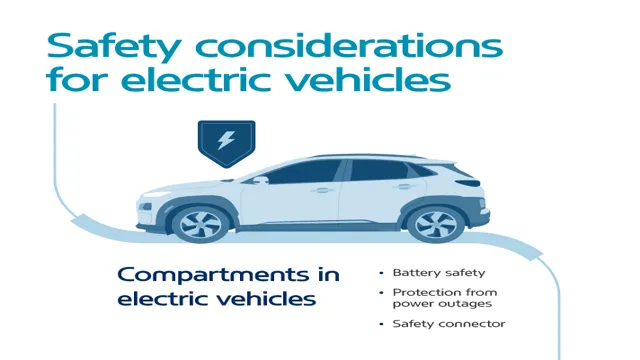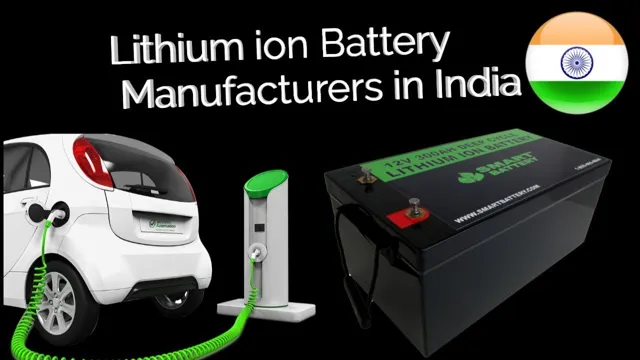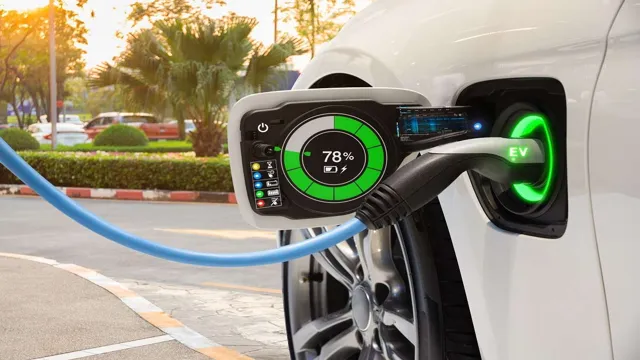The Shocking Truth About the Cost of Battery Packs in Electric Cars: A Complete Guide
Electric car battery cost has been a hot topic in recent years due to the growing popularity of electric vehicles. The cost of an electric car battery is a crucial factor for many car buyers, as it can significantly affect the overall cost of owning an electric car. While electric cars offer many advantages over traditional gas-powered cars, the high cost of batteries remains a barrier to widespread adoption.
In this blog post, we will explore the factors that impact the cost of electric car batteries, including manufacturing costs, materials, and research and development. We will also discuss the current trends in the industry and what we can expect in the future. So, if you’re interested in electric cars and want to learn more about the cost of batteries, keep reading!
Introduction
The cost of battery packs in electric cars has been a major topic of discussion in the automotive industry over the past few years. While the prices of battery packs have been continuously dropping, they still remain a significant portion of the overall cost of an electric car. Many automakers are still struggling to find ways to produce affordable electric vehicles for the mass market.
However, innovation in battery technology, such as solid-state batteries and increased energy density, could provide a solution to this problem. As battery technology advances, the cost of producing electric cars is expected to decrease significantly, making them more accessible to the average consumer. While the cost of battery packs is still a hurdle for some buyers, it’s important to note that fuel savings and potential tax incentives make electric vehicles a wise investment in the long run.
Explanation of battery pack in electric cars
Electric cars run on battery rather than on traditional fuel sources. The battery pack is the heart of the electric car, providing power to drive the engine and all other components. Unlike conventional cars, electric cars have a large battery pack that stores a vast amount of energy to allow for long-distance driving.
The battery pack typically consists of many small battery cells grouped together and connected in series to generate higher voltages. These cells are usually made of lithium-ion and are designed to have a long lifespan, high power density, and low self-discharge rate. This means that electric cars can be powered efficiently and effectively, making them a popular choice among consumers who are looking for a more sustainable and eco-friendly mode of transportation.
Factors Affecting Cost
The cost of battery pack in electric cars is one of the most significant factors driving the overall cost of the vehicle. The battery alone makes up a large portion of the entire car’s cost due to the complex and expensive materials required to manufacture them. Additionally, the size and energy output of the battery also play a role in determining the cost.
The more energy a battery can store, the more expensive it will be. Another factor is the technology used to manufacture the battery pack, as newer and more advanced technologies tend to cost more. Finally, economies of scale play a role in the cost of battery packs as demand for electric cars grows, the cost of the batteries will gradually decline.
Overall, the cost of manufacturing battery packs is a critical factor in making electric cars more affordable and accessible to the mass market.
Battery capacity
One of the factors that greatly affects the cost of a lithium-ion battery is its capacity. Battery capacity is the amount of energy that the battery can store, and it is measured in ampere-hours (Ah). The higher the battery capacity, the more energy it can store, and the longer it can power a device or system.
However, increasing battery capacity also means increased costs, as it requires additional materials and manufacturing processes. Additionally, the voltage and chemistry of the battery can also affect its capacity and ultimately, its cost. Therefore, when choosing a battery for a particular application, it is important to consider the required capacity and balance it with the cost to ensure the most cost-effective and efficient solution.
Brand and Model of Electric Car
When it comes to purchasing an electric car, the brand and model you choose can greatly affect the cost. Some well-known brands like Tesla and Nissan tend to come with a higher price tag than lesser-known brands. However, this does not mean that you have to sacrifice quality for a lower cost, as there are many factors that can affect the price of an electric car beyond the brand and model.
For example, the battery size and range can greatly impact the overall cost, as can any additional features such as self-driving technology or a premium sound system. Additionally, the availability of incentives and tax credits can also bring down the cost of owning an electric car, so it is important to do your research and compare prices and features before making a final decision. Ultimately, no matter what brand or model you choose, the benefits of driving an electric car, such as lower maintenance costs and a reduced environmental impact, make it a worthwhile investment.
Material cost
When it comes to material cost, there are several factors that businesses must take into consideration. The first and most obvious factor is the type of material being used. Different materials have varying costs, with some being more expensive than others.
Factors such as the quality and availability of the material also play a role in determining its cost. Another factor that can affect costs is the quantity of materials required. Ordering materials in bulk can often lead to lower costs, but this isn’t always the case.
Transportation costs and storage fees can also add to the overall cost of materials. Finally, the location of the supplier can greatly impact costs, with materials sourced from overseas often being more expensive due to shipping and import fees. To keep material costs down, it’s essential for businesses to carefully consider all of these factors and make strategic decisions based on their individual circumstances.
Ultimately, finding the right balance between cost and quality is key.
Cost of Popular Electric Car Batteries
If you’re thinking of buying an electric car, one of the biggest factors to consider is the cost of the battery pack. This is because the battery pack makes up a significant portion of the overall cost of the car. The cost of a battery pack depends on various factors such as the size of the pack, the chemistry of the batteries, and the manufacturer’s pricing strategy.
However, currently, the cost of the battery pack in an average electric car is around $10,000 to $15,000. Of course, prices vary for different electric car models, but this gives you an idea of what you can expect to pay for an electric car battery. It’s worth noting that battery prices have been declining over the years, and it’s expected to continue, which will make electric cars more affordable in the long run.
Additionally, there are also incentives and tax credits that can help reduce the cost of an electric car, making it a more cost-effective option for many people.
Tesla Model S
Tesla Model S, electric car batteries, cost Are you considering purchasing a Tesla Model S but wondering about the cost of its electric car batteries? You’re not alone! The batteries in popular electric cars are an important consideration for many buyers due to costs and potential maintenance issues. In the case of the Tesla Model S, the battery pack accounts for a significant portion of the car’s cost, but it’s important to note that the overall cost of ownership is still lower than a gas-powered vehicle. When it comes to maintenance, electric cars require less routine maintenance, including no oil changes and fewer brake replacements.
Additionally, the batteries are expected to last for many years, and Tesla offers an eight-year or unlimited-mile warranty on their battery packs. While the initial cost may be higher, the long-term savings and environmental benefits are worth considering when evaluating the cost of owning a Tesla Model S.
Nissan Leaf
The Nissan Leaf has gained a lot of attention in recent years as one of the most popular electric vehicles on the market. One major factor in this popularity is the cost of its battery. While prices have fluctuated over the years, the cost of a replacement battery for the Nissan Leaf has typically been in the range of $5,000 to $8,000.
This may seem like a lot, but it’s important to remember that the battery is one of the most expensive components of an electric car. However, it’s worth noting that the battery life of the Nissan Leaf has been impressive, with some owners reporting over 100,000 miles on the original battery. Plus, as technology continues to advance, the cost of electric car batteries is expected to come down over time.
So while the cost of a battery replacement may seem high now, it’s likely to become more affordable in the future.
Chevrolet Bolt
The Chevrolet Bolt is a popular electric car that has been making waves in the automotive industry for its advanced technology and eco-friendly features. One important factor to consider before purchasing an electric car is the cost of the battery. The Bolt’s battery pack, which has a capacity of 60 kWh, has a cost of around $10,000 to $12,000.
This price can vary depending on the model year and the dealer. It may seem expensive, but compared to other electric cars, the Bolt’s battery is priced competitively. Additionally, the cost of electric car batteries has been decreasing in recent years as technology improves and manufacturers scale up production.
Overall, investing in an electric car like the Chevrolet Bolt can save you money in the long run with lower fuel costs and fewer emissions.
Future Projections
The cost of battery packs in electric cars has been steadily decreasing over the years and there is a bright future ahead. According to analysts, the cost of a battery pack is projected to drop below $100 per kilowatt-hour by 202 This means that the cost of an electric car will soon be equal to – or even less than – that of a gasoline-fueled car.
This is a huge milestone for the electric vehicle industry and will likely spark even more widespread adoption of electric cars. In fact, some analysts predict that by 2040, over half of all new cars sold worldwide will be electric. This projection can be attributed to the growing awareness of the environmental impact of traditional cars, the decreasing cost of electric vehicles, and the improvements in battery technology.
It’s truly an exciting time for the automotive industry as we move towards a more sustainable future.
Predictions of decreasing cost
One of the most significant trends in technology over the past few decades has been the decreasing cost of hardware, software, and other IT resources. This trend is expected to continue into the future, with experts predicting that technology will become even more affordable over time. This is due to several different factors, including increased competition among technology companies, improvements in manufacturing processes, and advancements in artificial intelligence and automation.
As a result, consumers can expect to see decreasing costs for everything from smartphones and laptops to cloud computing services and internet connectivity. In other words, the future looks bright for those looking to keep up with the latest technological advancements without breaking the bank.
Conclusion
In the world of electric cars, the battery pack is like the heart of the vehicle – essential for it to function properly. While the cost of the battery pack may seem steep at first, investing in a quality battery pack can ultimately save you money in the long run with lower fuel and maintenance costs. So, as the old adage goes: yes, quality comes at a price, but with the right battery pack, the future of driving could be electric and electrifying!”
FAQs
What is the cost of a battery pack in an electric car?
The cost of a battery pack in an electric car can vary. It depends on the type and size of the battery pack, as well as the brand and model of the car. Generally, you can expect to pay between $5,000 to $15,000 for a replacement battery pack.
How long does an electric car battery last?
The lifespan of an electric car battery can vary depending on several factors, such as how often it’s charged, the driving conditions, and the age of the battery. Typically, electric car batteries can last anywhere from 5 to 15 years.
Can you replace just one battery cell in an electric car battery pack?
In some cases, it is possible to replace just one battery cell in an electric car battery pack. However, this requires specialized knowledge and equipment, and it’s not recommended unless you’re a professional.
How can I extend the lifespan of my electric car battery?
There are several steps you can take to extend the lifespan of your electric car battery, such as avoiding frequent quick charges, charging to no more than 80% capacity, avoiding extreme temperatures, and keeping the battery clean.
